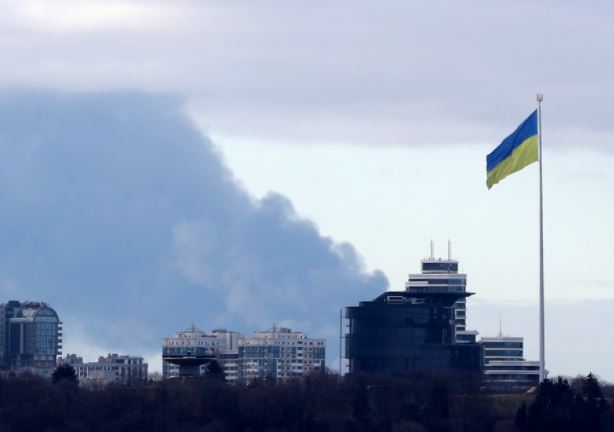COMMENT: Ukraine crisis calls for peace efforts, and a new global mechanism

By JEAN-CHRISTOPHE BAS
As Winston Churchill was working to help establish the United Nations after the end of World War II, he famously said:”Never let a good crisis go to waste.”

The same applies today, and we should not let the Ukrainian tragedy go to waste. After almost two months of conflict, and the deaths of thousands of people and destruction of many cities, it appears that there will be no winners, only losers, not just for Ukraine and Russia, but also for the international community. Major world powers, so far, have been unable, or are unwilling, to stop the conflict or mediate successfully.
The UN resolution adopted on March 2 requesting Russia to stop its offensive and immediately withdraw all troops from Ukraine saw 141 states vote in favor of the motion, five against and 35 abstentions. Most observers in the Western world considered it an overwhelming condemnation of Russia by the international community.
But one can see the glass half empty or half full. There is another way of reading the UN resolution, stressing that countries representing about 55 percent of the world population haven’t supported the resolution; also that four out of the five BRICS countries either abstained or voted against the resolution, only South Africa voted in favor.
The Ukraine-Russia conflict, and the sanctions against Moscow are hitting economies around the globe, with emerging market and developing countries in the European and Central Asian region expected to bear the brunt, says the World Bank’s latest Economic Update.
The region’s economy is now forecast to shrink by 4.1 percent this year, in stark contrast to the pre-conflict forecast of 3 percent growth, as the economic shocks from the conflict compound the ongoing impacts of the COVID-19 pandemic.
As for Ukraine, its economy is estimated to shrink by a whopping 45.1 percent this year, although the magnitude of the contraction will depend on the duration and intensity of the conflict.
Hit by unprecedented sanctions, Russia’s economy has already plunged into a deep recession with output projected to contract by 11.2 percent in 2022.
After two years of the COVID-19 crisis wreaking havoc across the world, the conflict in Ukraine will cause even more harm to the global economy. Not to mention the human tragedy it has caused. So it is in no one’s interest, definitely not China’s, to let the conflict go on. More than seven decades after the end of World War II, the world is at a crossroad again.
Either we let the Ukraine crisis continue and escalate with the risk of it spreading further, or all world powers-not just Western countries-decide to mediate and play an active role in stopping the conflict on reasonable terms, acceptable to both Ukraine and Russia.
In that respect, China can play a very important role. A united initiative is needed by the leaders of the other BRICS countries plus Turkey, as well as European leaders to seek an end to the conflict immediately. A sort of peer-to-peer pressure for the benefit of world peace and development.
The time has come for “a new Bretton Woods moment”. The UN Monetary and Financial Conference held in July 1944 led to what came to be called the Bretton Woods system for international commercial and financial relations after the end of World War II.
By brokering such an agreement again, BRICS would demonstrate its capacity to play the role of a peacemaker on the global stage and pave the way toward the remaking of the global compact that should unite all countries in the 21st century.
Under the auspices of “G13” (G7 plus BRICS plus Turkey), this would lead to the long due conversation on the reform of the international order with the purpose of finding common ground to build a just, stable, peaceful and prosperous world, a community with a shared future.
The author is the CEO of Connecters for Peace, a Paris-based think tank.
Source: China Daily which claims “The views don’t necessarily reflect those of China Daily.”









